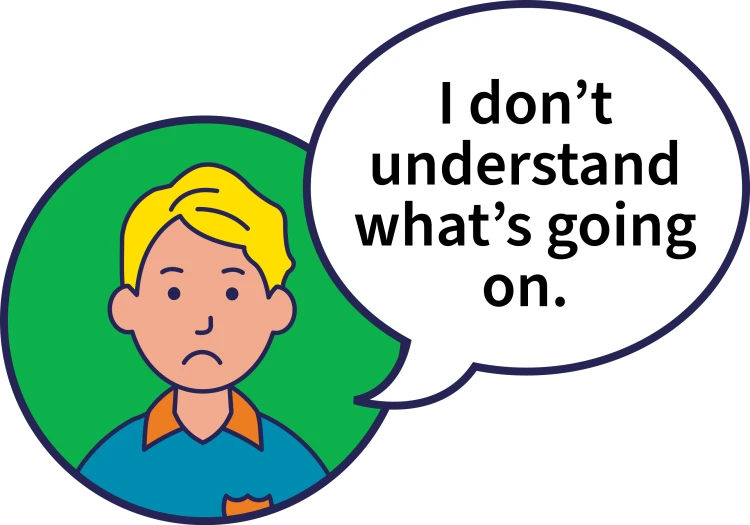Exploring maths anxiety
Welcome to the latest addition to our Thought Leadership series, where experts, practitioners and innovators share their knowledge and expertise on a range of different topics to enrich your classroom.
At Daisy Education, we are committed to supporting educators beyond our online learning programmes. Alongside this series of sharing insights, we are also thrilled to provide free teacher resources, CPD events, and initiatives, competitions and challenges to motivate students and reward success.
A huge thank you to award-winning Higher Level Teaching Assistant Claire Davies for exploring her own maths anxiety as a child, how she carried this into adulthood and using her knowledge of maths anxiety from her degree to relate to students currently suffering in the often overlooked primary school setting.
Exploring maths anxiety
Maths anxiety is an issue that is very close to my heart. Having moved primary school due to a change of family makeup, I found myself missing out on topics which had not yet been taught at my old school but had at my new, and vice versa. This meant I never received quality first-time age-appropriate teaching of fractions, decimals, percentages and long division – an issue which would colour my experience of maths throughout my life.
Sleepless nights, racing heart, sweating palms, tears, arguments, anxiety and avoidance of maths all became second nature to me as I navigated the maths landscape at secondary school, often not understanding a word of what was being said but trying my hardest to be able to do the work that everyone else was doing. GCSE Maths took me three attempts to pass with a grade C – and having to continue with maths at Sixth Form whilst coping with three demanding A levels was a real challenge. It was a relief to finally get that ‘magic’ C grade that everyone holds so dear and walk away from the study of maths forever, or so I thought...

Fast forward to 2015
An interview for a position in a local primary school had me anxious about questions relating to maths. I had never really gone back to maths since 1990, but I knew that it was a vital, core element of primary teaching and my fears would be realised. I knew that there would be a question about where I thought my weaknesses were and that my poor maths skills would mean I wouldn’t get the job. Indeed, the question arose, and I was honest about my capabilities – the then Deputy Head reassured me that if I was successful, then she would see to it that I would overcome my maths anxiety and be confident to support the children.
I did get the job. True to her word, in the topics where she knew I struggled, I became an observer and learned the skills that had bypassed me for 30+ years. Learning these topics from scratch was an eye opener and suddenly things slotted into place. I am now very confident in maths and my brain has become very logical, seeing patterns in numbers and being able to dissect problems to solve them – a departure from my usual panic and avoidance. After all the heartache, my parents think I have been replaced by aliens when I talk about teaching fractions or long division! I am evidence that the difference between maths confidence and maths anxiety is the right teacher, the right environment, the right encouragement, and a belief that you can overcome your fears and do it.
Fast forward a few more years
It really was a no brainer to me when it came to dissertation time in the Education Studies degree I started in 2022 that my subject would be maths anxiety – and so my research began at the start of 2025. It turns out that maths anxiety is known to start in primary school – and yet there are very few studies that focus upon this age group. Research tends to be done in the secondary school population or with adults, when, let’s face it, if you have got it, it could be too late to change anything. This was very frustrating to me. It is almost as if we want to sweep it under the carpet and pretend everything is OK, that it doesn’t exist – wrongly labelling children as lazy or low ability, when all they could need is the positive mindset change to succeed.

It should come as no surprise to educators that out of 29 children in the Year 6 class I work in, 13 scored to have signs of maths anxiety when I administered the Modified Abbreviated Maths Anxiety test (mAMAS). I could have easily identified these children without the help of the questionnaire. We have all seen the signs; these children are in every class - avoiding eye contact when there is a tricky question, not putting their hand up, visible panic, absence when maths assessments are due, not ‘getting it’ despite every attempt to explain and break it down. The shrugs, the sighs, the meltdowns, the tears – the giving up and the looks of despair.
Subsequent interviews with the 13 revealed that poor classroom experiences lower down in school had been a contributing factor – most revealing was that these negative experiences were focused upon a year group in particular which meant that these children had gone through most of their primary careers believing that maths was the enemy, one even commenting that she felt a ‘total failure’ in maths because of this experience. The aftermath of Covid-19, resulting in huge gaps in the foundations of their maths knowledge. Fear of certain topics, like fractions and long division were also amongst my findings. Perhaps most telling for a Year 6 cohort was the fear associated with being put in a low set in high school, being separated from friends who they saw as being much more switched on when it came to maths, the fear of failing SATs, or the CAT tests done at transition to high school.
One thing that was very evident was that maths anxiety is on the rise and, as educators, we need to do everything in our power to identify it early and work with children to alleviate or eradicate it. There really is little point waiting until high school, where essentially the damage is already done, and negative associations and habits are already part of established behaviour. Our children cannot be allowed to carry this fear into adulthood, where even the simplest of number tasks become unachievable because of early experiences with maths.
It seems odd to refer to myself as a ‘survivor’ of maths anxiety, but ultimately that is exactly what I am. I no longer refer to myself as being ‘rubbish at maths’ because, simply, I am not - I can confidently say that I love maths! I wish 16-year-old me had known what 52-year-old me now knows with regards to maths - most certainly, my teenage struggle at school and the heartache I put my parents through because of maths would never have happened and maybe, just maybe, I could have conquered the world!
Claire Davies
HLTA/Intervention Lead at St Bede's Catholic Primary School, Newcastle

